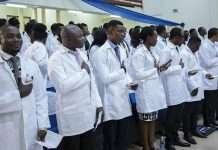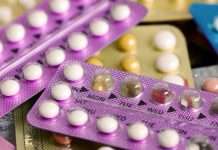
The World Health Organisation (WHO) says that donating just one unit of blood can save the lives of up to three patients.
Dr Matshidiso Moeti, WHO Regional Director for Africa, said this in a message to commemorate the 2022 World Blood Donor Day, celebrated every June 14.
“This year’s theme, `Donating blood is an act of solidarity. Join the effort and save lives.
“The day highlights the critical role of voluntary blood donations in saving lives, and enhancing community solidarity and social cohesion.
“Donating just one unit of blood can save the lives of up to three patients,” Moeti said.
According to her, the global community marks the day to focus on the gift of life from voluntary unpaid blood donors around the world.
“On this day I urge African governments and political leaders to prioritize the provision of adequate human and financial resources to secure the future of national blood transfusion services.
“A blood service that gives patients access to safe blood and blood products, in sufficient quantities, is a key component of an effective health system,’’ she said.
Moeti said that the organization in the African Region, joined the call for more people to become regular blood donors.
She said compared to other regions globally, the African Region saw a disproportionate number of conditions requiring donor blood, impacting as many as seven million patients every year.
“Examples include hemorrhage associated with pregnancy and childbirth, severe anemia due to malaria and malnutrition, bone marrow and inherited blood disorders, trauma and accidents, as well as man-made and natural disasters.
“While the need for donor blood is universal, access for everyone who needs it is not,’’ she said.
Moeti said in the African Region, demand regularly outstripped supply negatively, impacting timely access for all patients who needed safe and quality-assured blood to save their lives.
“As a consequence of the COVID-19 pandemic, voluntary unpaid blood donations dropped significantly. Malawi, for example, registered a 46 per cent decrease in donations,’’ she said.
Moeti said that countries across the African Region worked hard to improve blood donation frequency, and the situation was showing signs of stabilizing.
She said that blood transfusion services in many countries reached out to blood donors through public awareness campaigns, transporting donors from and to their homes, using digital platforms and establishing call centers.
“The situation remains challenging, and it is exacerbated by issues such as staff shortages and limited funding from governments and partner organizations for effective blood donor education, recruitment, and retention,’’ Moeti said.
According to her, as WHO in the African Region, “we provide support to countries at various levels, including resource mobilization for the implementation of national blood transfusion plans”.
She said others were advocacy for integrating blood safety in the plans and strengthening the legal and regulatory framework for blood safety.
“Seeking out opportunities for partnerships and collaborations with media, the private sector, faith-based and non-governmental organizations will help increase the recruitment and retention of voluntary unpaid blood donors.
“I want to sincerely thank Africa’s blood donors for their selfless contribution to national health systems, through this life-saving gift to patients who need transfusion therapy.
“I want to acknowledge the tireless efforts of blood services staff who are deeply committed to maintaining critical blood supplies.
“Also, the research and development professionals pursuing new technologies and uses for donated blood, as well as the medical teams who use blood rationally to save lives,” Moeti said.
According to her, “by becoming a blood donor, you will help ease the pressure on health systems still struggling under the burden of the COVID-19 pandemic”. (NAN)













